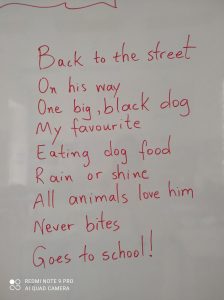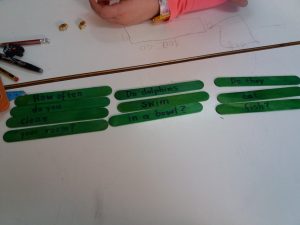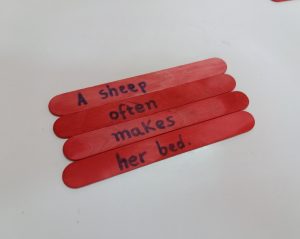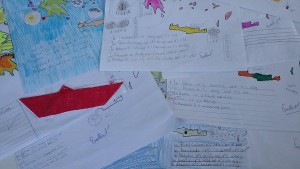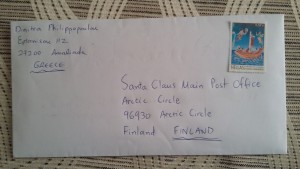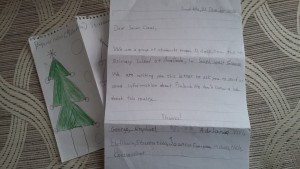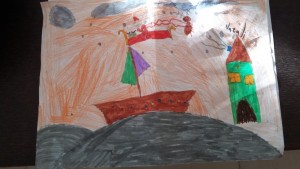Play time! Review the Present Continuous using DIY word puzzles!
 |
||
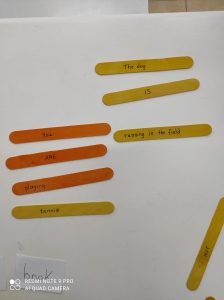 |
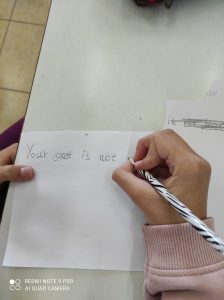 |
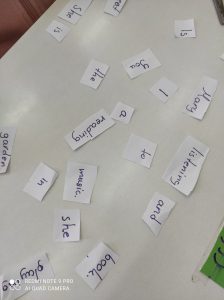 |
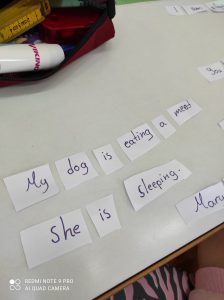 |
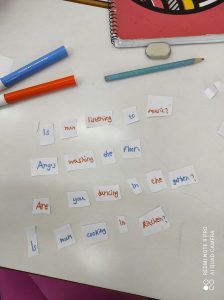 |
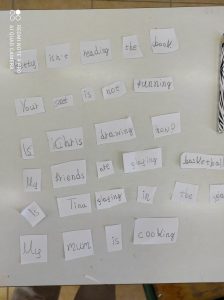 |
It was time for my 4th graders to review the Present Continuous -a time when students (and teachers) get to see if they actually have understood the relevant grammar. I had realized they sometimes omit the verb “be” when they use the Present Continuous, so we talked about the verbs in this tense as if they were trains. Then I thought I could bring my popsicle stick word puzzles, and then every student made a puzzle of their own, using simple strips of paper that were properly cut to contain a word. After each student had made their sentences, they took turns to visit the working spaces of their classmates, to discuss their own. It was an interesting day, to say the least!
